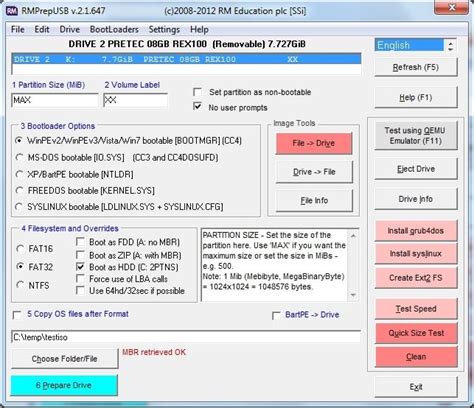Aspire for sleep apnea
Author: f | 2025-04-25

Obstructive Sleep Apnea. Obstructive sleep apnea Can Inspire Sleep Apnea Treatment Be Used For All Types Of Sleep Apnea, Including Central Sleep Apnea? When it comes to using Inspire sleep apnea treatment for all

EMST150 for Sleep Apnea or OSA Aspire
Sleep apnea is a serious condition that disrupts your breathing while you sleep. This can lead to poor sleep quality and other health issues. If you're in Meridian and worried about sleep apnea, Dr. Cameron Kuehne at The Center for Sleep Apnea and TMJ can help. Understanding the signs and symptoms can help you take the necessary steps to improve your sleep and overall health.Many people with sleep apnea experience loud snoring and sudden awakenings due to trouble breathing. These episodes can be frightening and leave you feeling exhausted during the day. You may also experience morning headaches, dry mouth, and difficulty concentrating. Recognizing these symptoms is the first step toward finding relief.Dr. Cameron Kuehne emphasizes the importance of identifying not just the symptoms but also the risk factors associated with sleep apnea. Conditions like obesity, smoking, and family history can increase your chances of developing this disorder. Knowing these risks can help you be more vigilant about your health.In this article, Dr. Cameron Kuehne will explain the common signs of sleep apnea, risk factors, self-assessment techniques, and when to seek professional help. This information is designed to be clear and easy to understand, so you can take action toward better sleep and health. Common Signs and Symptoms of Sleep Apnea Understanding the signs and symptoms of sleep apnea is crucial for an early diagnosis. Dr. Cameron Kuehne highlights some common symptoms that you should be aware of: Loud Snoring: One of the most common signs is loud, persistent snoring. This usually disrupts your sleep and the sleep of others around you.Gasping for Air during Sleep: People with sleep apnea often wake up suddenly, gasping for air. These interruptions in breathing may go unnoticed by the person but can be observed by a sleep partner.Daytime Tiredness: Despite sleeping for 7-8
GO2SLEEP to track sleep,screen sleep apnea,sleep apnea,sleep
Hours, you might still feel very tired during the day. This happens because sleep apnea disrupts the sleep cycle, preventing deep restful sleep.Morning Headaches: Frequently waking up with a headache could be a sign of poor oxygen flow during sleep.Difficulty Concentrating: Lack of quality sleep can make it hard to focus during the day, affecting your work and daily activities. Dr. Cameron Kuehne stresses that if you experience any of these symptoms regularly, it's important to seek further evaluation. Early recognition can lead to timely treatment and improved quality of life. Risk Factors Associated with Sleep Apnea Certain risk factors can make you more likely to develop sleep apnea. Dr. Cameron Kuehne explains these risk factors to help you understand your own risk level. Obesity: Being overweight is one of the biggest risk factors for sleep apnea. Extra fat around the neck can obstruct breathing during sleep.Age: While sleep apnea can occur at any age, it is more common in older adults. As you age, the muscle tone in your throat tends to decrease, making airway collapse more likely.Gender: Men are more likely to develop sleep apnea than women. However, the risk for women increases, especially after menopause.Family History: If sleep apnea runs in your family, your chances of having it are higher. Genetics can influence the structure of your airways and how you breathe during sleep.Alcohol and Smoking: Consuming alcohol relaxes throat muscles, increasing the risk of obstruction. Smoking can cause inflammation and fluid retention in the upper airway. Knowing these risk factors can help you take proactive steps in assessing your risk for sleep apnea. Dr. Cameron Kuehne advises paying close attention to these factors and discussing them if you have concerns about your sleep health. Self-Assessment Techniques for Identifying Sleep Apnea Dr. Cameron Kuehne suggests several self-assessmentInspire Sleep Apnea Innovation - Obstructive Sleep Apnea
Sleep apnea patients usually use their CPAP machine while sleeping. However, you may be wondering if you can get CPAP therapy also while you’re awake. Especially if you want to get used to the machine or you are suffering from an advanced type of sleep apnea or additional respiratory diseases like COPD.We’re going to clear up whether there is any benefit to getting your continuous positive airway pressure therapy while awake.Can I Use a CPAP Machine when I'm Awake?The short answer is yes, you can. However, this depends on whether you experience sleep apnea or other breathing disorders during the day.Sleep apnea is a sleep disorder that causes your breathing to stop and start again multiple times a night. It can be a serious health problem since it can decrease oxygen levels in important organs, such as the brain and heart.Even if this sleeping disorder is not diagnosed early on , some of the symptoms include headaches, excessive weakness, daytime sleepiness, and irritability.Sleep apnea can also lead to more serious medical conditions that can impact your quality of life, like a higher risk of strokes and other cardiovascular complications.Most physicians recommend CPAP therapy, which is considered one of the most effective treatments for obstructive sleep apnea (OSA). CPAP devices provide air pressure through a CPAP mask, allowing your upper airway to stay open while you sleep.When is Daytime CPAP Usage Advisable?If you breathe properly while awake or during naps, there’s no reason to receive CPAP treatment in the daytime. However, other related conditions can lead to high levels of carbon dioxide in the blood, just like in COPD (chronic bronchitis or emphysema) where patients usually present with difficulty breathing, coughing, wheezing, and sputum production.In these cases a healthcare provider could recommend using APAP or CPAP therapy during the day, that way there is an increased and easier uptake of oxygen from your lungs.In specific cases some doctors recommend wearing it while watching TV, using the computer, or reading a book. Even if you do not experience breathing problems during the day, it’s a great way to get comfortable with your CPAP mask, giving you a better sense of the fit and helping you get familiar with it before going to bed.Keep in mind that although CPAP machines are safe, overuse of the equipment has its side effects such as dry mouth or facial skin irritation, especially if you use it during the day and night.The best way to reduce and prevent many of these side effects is by using a good humidifier, cleaning the machine and choosing the right mask for your individual needs and preferences.Daytime Sleep Apnea: Symptoms, Risks & TreatmentIt’s important to clarify that people with sleep apnea usually have trouble breathing only at night, but in some uncommon and advanced types of patients with sleep apnea, they could also have trouble breathing while awake.If you suffer from central sleep apnea, you may feel sleepy during the day or suffer from frequent headaches due to a constantly interrupted. Obstructive Sleep Apnea. Obstructive sleep apnea Can Inspire Sleep Apnea Treatment Be Used For All Types Of Sleep Apnea, Including Central Sleep Apnea? When it comes to using Inspire sleep apnea treatment for allSleep Apnea 101 - What is Obstructive Sleep Apnea
If you answered YES to two or more of these questions, you may be suffering from Sleep Apnea. Untreated, sleep apnea can cause debilitating sleepiness, increase the chances of driving accidents and may lead to health complications, including heart failure.If you suspect you have sleep apnea, there are a few things that you might do before going to see a doctor or sleep specialist.1.Keep a sleep diary – For a few nights, you or a sleep partner can record if you are snoring and how loud your snoring is, how well you are sleeping, whether you are having trouble breathing (choking or gasping), and whether you feel refreshed in the morning.2.Record yourself sleeping – Recording yourself can be a helpful tool for your doctor. You can use a sound-activated audio recorder or a software program that turns your computer into a recorder.With your sleep record in hand, consult your doctor. If your doctor suspects sleep apnea, you will probably be sent for an overnight sleep study in a sleep clinic (also known as a sleep lab or sleep center). Sleep tests in a sleep clinic help to diagnose sleep apnea by measuring how frequently you stop breathing.What is a Sleep Study (Polysomnogram-PSG)?A Polysomnogram (PSG) is a sleep study designed to detect abnormalities during sleep. Often during sleep the body functions act differently than while awake. A PSG monitors these functions, including sleep stages, eye movement, brain waves, muscle activity, breathing, body positions and heartbeat. Accurate diagnosis is important to receiveSleep Apnea Insights: Understanding Sleep Apnea Data On Fitbit
Stopping CPAP therapy, it’s important to understand what happens if you don’t use your CPAP machine so that you can make an informed decision. Missing a few days here and there probably won’t cause any serious issues, but sleeping without your CPAP for multiple weeks or even months at a time can be detrimental to your health and well-being. What Happens If You Don’t Use Your CPAP Machine? In most cases, taking a short break from your CPAP machine is relatively safe. However, if you don’t use your CPAP machine for an extended period, it can cause your sleep apnea to return in full force, along with its unpleasant side effects and concerning health risks. Side Effects of Not Using Your CPAP Machine The effects will be minimal after the first couple of days without your CPAP machine, but within a couple of weeks, you will start to notice the impact of sleep apnea more and more. These effects are primarily caused by the regular sleep disruptions that occur when your sleep apnea returns. Eventually, you will begin to feel much like you did before you started CPAP. Daytime Fatigue: One of the most common signs of untreated sleep apnea is daytime fatigue, which is typically caused by poor sleep health. High Blood Pressure: Studies show that incorrectly using your CPAP machine can lead to high blood pressure. Low Oxygen: When you stop CPAP therapy, your body may experience intermittent periods of low oxygen overnight. Increased Blood Sugar: Without proper management, sleep apnea can cause an increase in blood sugar levels. Elevated Heart Rate: CPAP machines can reduce heart rate in people with sleep apnea. Headaches: If your sleep apnea is not treated correctly, it can cause headaches due to the impacts on your blood pressure and oxygen levels. MoodDevice to treat sleep apnea - Buy Device to treat sleep apnea
Techniques to help you determine if you might have sleep apnea. While these methods are not a substitute for professional diagnosis, they can provide valuable insights.1. Sleep Diary: Keep a diary of your sleep patterns, noting any symptoms like loud snoring or frequent awakenings. Record how you feel in the morning and throughout the day. This can help you identify patterns and share details with your doctor.2. Partner Observations: Ask a partner or family member to observe your sleep habits. They can watch for signs like snoring, gasping, or pauses in breathing. Sometimes others notice things that you might miss.3. Online Questionnaires: Take online sleep apnea questionnaires that ask about your symptoms and risk factors. These can give you a preliminary idea of whether you might have sleep apnea.4. Video Recording: Use a camera or smartphone to record yourself sleeping. This can help you observe snoring, pauses in breathing, or restless movements.By utilizing these self-assessment techniques, you can gather useful information to discuss with Dr. Cameron Kuehne. This preliminary self-assessment can be an important step toward getting the help you need. Dr. Cameron Kuehne’s Recommendations for Seeking Professional Help When it comes to seeking professional help for sleep apnea, Dr. Cameron Kuehne has some important recommendations. Consulting with a qualified professional can ensure you get the right diagnosis and treatment plan.1. Consult Your Primary Doctor: Your primary doctor can be the first point of contact. Discuss your symptoms and concerns during a regular check-up. They can refer you to a sleep professional for further evaluation.2. Visit a Sleep Specialist: Professionals like Dr. Cameron Kuehne at The Center for Sleep Apnea and TMJ have the expertise to diagnose and treat sleep apnea. They can perform thorough evaluations to understand your condition better.3. Discuss All Symptoms: Be sure to mention all your. Obstructive Sleep Apnea. Obstructive sleep apneaComments
Sleep apnea is a serious condition that disrupts your breathing while you sleep. This can lead to poor sleep quality and other health issues. If you're in Meridian and worried about sleep apnea, Dr. Cameron Kuehne at The Center for Sleep Apnea and TMJ can help. Understanding the signs and symptoms can help you take the necessary steps to improve your sleep and overall health.Many people with sleep apnea experience loud snoring and sudden awakenings due to trouble breathing. These episodes can be frightening and leave you feeling exhausted during the day. You may also experience morning headaches, dry mouth, and difficulty concentrating. Recognizing these symptoms is the first step toward finding relief.Dr. Cameron Kuehne emphasizes the importance of identifying not just the symptoms but also the risk factors associated with sleep apnea. Conditions like obesity, smoking, and family history can increase your chances of developing this disorder. Knowing these risks can help you be more vigilant about your health.In this article, Dr. Cameron Kuehne will explain the common signs of sleep apnea, risk factors, self-assessment techniques, and when to seek professional help. This information is designed to be clear and easy to understand, so you can take action toward better sleep and health. Common Signs and Symptoms of Sleep Apnea Understanding the signs and symptoms of sleep apnea is crucial for an early diagnosis. Dr. Cameron Kuehne highlights some common symptoms that you should be aware of: Loud Snoring: One of the most common signs is loud, persistent snoring. This usually disrupts your sleep and the sleep of others around you.Gasping for Air during Sleep: People with sleep apnea often wake up suddenly, gasping for air. These interruptions in breathing may go unnoticed by the person but can be observed by a sleep partner.Daytime Tiredness: Despite sleeping for 7-8
2025-04-18Hours, you might still feel very tired during the day. This happens because sleep apnea disrupts the sleep cycle, preventing deep restful sleep.Morning Headaches: Frequently waking up with a headache could be a sign of poor oxygen flow during sleep.Difficulty Concentrating: Lack of quality sleep can make it hard to focus during the day, affecting your work and daily activities. Dr. Cameron Kuehne stresses that if you experience any of these symptoms regularly, it's important to seek further evaluation. Early recognition can lead to timely treatment and improved quality of life. Risk Factors Associated with Sleep Apnea Certain risk factors can make you more likely to develop sleep apnea. Dr. Cameron Kuehne explains these risk factors to help you understand your own risk level. Obesity: Being overweight is one of the biggest risk factors for sleep apnea. Extra fat around the neck can obstruct breathing during sleep.Age: While sleep apnea can occur at any age, it is more common in older adults. As you age, the muscle tone in your throat tends to decrease, making airway collapse more likely.Gender: Men are more likely to develop sleep apnea than women. However, the risk for women increases, especially after menopause.Family History: If sleep apnea runs in your family, your chances of having it are higher. Genetics can influence the structure of your airways and how you breathe during sleep.Alcohol and Smoking: Consuming alcohol relaxes throat muscles, increasing the risk of obstruction. Smoking can cause inflammation and fluid retention in the upper airway. Knowing these risk factors can help you take proactive steps in assessing your risk for sleep apnea. Dr. Cameron Kuehne advises paying close attention to these factors and discussing them if you have concerns about your sleep health. Self-Assessment Techniques for Identifying Sleep Apnea Dr. Cameron Kuehne suggests several self-assessment
2025-04-15If you answered YES to two or more of these questions, you may be suffering from Sleep Apnea. Untreated, sleep apnea can cause debilitating sleepiness, increase the chances of driving accidents and may lead to health complications, including heart failure.If you suspect you have sleep apnea, there are a few things that you might do before going to see a doctor or sleep specialist.1.Keep a sleep diary – For a few nights, you or a sleep partner can record if you are snoring and how loud your snoring is, how well you are sleeping, whether you are having trouble breathing (choking or gasping), and whether you feel refreshed in the morning.2.Record yourself sleeping – Recording yourself can be a helpful tool for your doctor. You can use a sound-activated audio recorder or a software program that turns your computer into a recorder.With your sleep record in hand, consult your doctor. If your doctor suspects sleep apnea, you will probably be sent for an overnight sleep study in a sleep clinic (also known as a sleep lab or sleep center). Sleep tests in a sleep clinic help to diagnose sleep apnea by measuring how frequently you stop breathing.What is a Sleep Study (Polysomnogram-PSG)?A Polysomnogram (PSG) is a sleep study designed to detect abnormalities during sleep. Often during sleep the body functions act differently than while awake. A PSG monitors these functions, including sleep stages, eye movement, brain waves, muscle activity, breathing, body positions and heartbeat. Accurate diagnosis is important to receive
2025-04-04